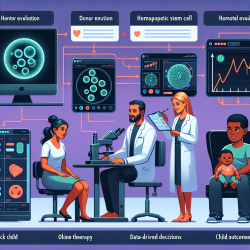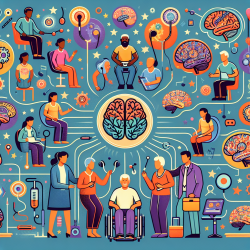Introduction
In the realm of implementation science, bridging the gap between research and practice is paramount. Effective collaboration between researchers and practitioners can often be hindered by the use of complex jargon. The research article "Implementation Science in Plain Language: The Use of Nonjargon Terms to Facilitate Collaboration" highlights the importance of using plain language to foster better communication and collaboration among stakeholders. This blog explores how practitioners, especially those involved in online therapy services like TinyEYE, can benefit from implementing these findings to enhance their practice.
The Importance of Plain Language
Implementation science aims to ensure that effective interventions are successfully delivered in real-world settings. However, the specialized language used within the field can create barriers to collaboration. The research by Dorsey et al. (2023) emphasizes the need for plain language to facilitate understanding and engagement among diverse stakeholders. By translating complex terms into more accessible language, practitioners can enhance communication, reduce power imbalances, and foster equitable partnerships.
Application in Online Therapy Services
For companies like TinyEYE that provide online therapy services to schools, the use of plain language can significantly improve collaboration with educational institutions, therapists, and families. Here are some practical steps practitioners can take:
- Develop Plain Language Terms: Collaborate with stakeholders to create simple, understandable terms for key concepts in your field. This can involve working with educators, parents, and therapists to ensure everyone has a shared understanding of the terminology used.
- Enhance Stakeholder Engagement: Use plain language in meetings, reports, and training sessions to ensure all participants can contribute meaningfully. This approach can lead to more productive discussions and better outcomes for children receiving therapy.
- Facilitate Training and Implementation: By using plain language, you can make training materials more accessible, ensuring that therapists and educators can implement interventions effectively. This is particularly important in online settings where face-to-face clarification may not be possible.
Encouraging Further Research
The research by Dorsey et al. (2023) provides a foundation for further exploration into the use of plain language in implementation science. Practitioners are encouraged to conduct their own research to identify additional terms that could benefit from simplification. This ongoing effort can lead to a more inclusive and effective implementation of interventions across various settings.
Conclusion
In conclusion, the use of plain language in implementation science is a powerful tool for enhancing collaboration and achieving better outcomes. For practitioners in the field of online therapy, adopting these strategies can lead to more effective partnerships and improved services for children. By prioritizing clear communication, we can ensure that interventions are not only understood but also embraced by all stakeholders involved.
To read the original research paper, please follow this link: Implementation science in plain language: The use of nonjargon terms to facilitate collaboration.










